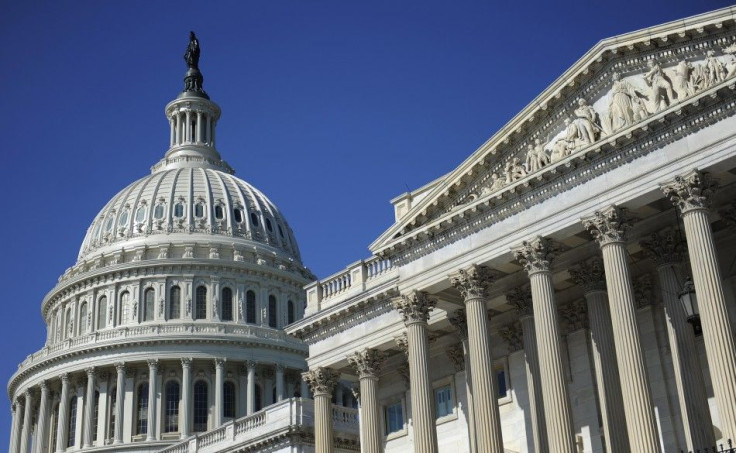House GOP Passes Spending Bill on 2nd Try but Showdown Looms

Republicans in the House of Representatives regrouped after midnight Friday to approve a must-pass spending bill, but the prospect of a government shutdown loomed as Democrats said it would go nowhere in the Senate.
Even in the face of rock-bottom approval ratings, the dispute suggested that lawmakers may not be able to bridge their differences to pass even the most essential legislation.
Aid for victims of tornadoes, wildfires and other disasters could dry up by Monday if Congress does not replenish a dwindling relief fund. Funding for everything from national parks to law enforcement could expire in a week.
By a largely party-line vote of 219 to 203, the Republican-controlled House in a late-night vote approved a bill that would keep the government running through Nov. 18 and provide $3.65 billion for disaster relief in one of the most extreme years for weather in U.S. history.
Republican leaders managed to minimize defections from lawmakers aligned with the conservative Tea Party movement, who had helped defeat a nearly identical version of the bill a day earlier.
Democrats overwhelmingly voted against the bill on the grounds that disaster aid was inadequate. They also said a $1.5 billion cut to an electric-vehicle program, included to partially offset the increased disaster aid, would hurt the economy.
The Senate's top Democrat vowed to defeat the bill.
It fails to provide the relief that our fellow Americans need as they struggle to rebuild their lives in the wake of floods, wildfires and hurricanes, and it will be rejected by the Senate, said Majority Leader Harry Reid of Nevada.
House Majority Leader Eric Cantor, R-Va., brushed off Reid's threat and said the House intended to adjourn for a weeklong break Friday.
I guess Harry Reid will have to bear the burden of denying the disaster victims the money that they need, he told reporters.
House Speaker John Boehner, R-Ohio, said the dispute would not lead to a government shutdown. Congress has more than a week to resolve its differences, and every spending debate this year has gone down to the wire.
LOWERING THE TEMPERATURE
Boehner and other Republican leaders have promised to lower the temperature on Capitol Hill after fierce budget battles with Democrats pushed the government to the brink of a shutdown in April and the edge of default in August.
The months of turmoil in Washington have spooked consumers, rattled investors and led to a historic downgrade in the country's top-notch AAA credit rating.
Republican leaders have struggled at times to rein in a Tea Party faction that has shown no appetite for compromise, even as a special bipartisan committee searches for hundreds of billions in budget savings that will likely require painful sacrifices for Republicans and Democrats alike.
At a closed-door meeting Thursday, Boehner told the holdouts that their stubbornness would weaken their party's bargaining position with the Senate.
That was evidently enough to convince 24 Republicans to change their position.
Democrats questioned why anybody would switch their vote.
If you thought the bill was wrong yesterday there is no reason to think the bill is better today. Virtually nothing has changed, said Rep. Louise Slaughter, D-N.Y.
The revived bill included one tweak: it zeroed out a $100 million dollar loan for Solyndra, the failed solar-panel maker that has drawn scrutiny for its ties to the Obama administration. That would have little practical effect, as the company has already declared bankruptcy and the loan program is set to expire next week.
(Reporting by Andy Sullivan and Thomas Ferraro; Editing by Vicki Allen)
© Copyright Thomson Reuters 2024. All rights reserved.





















